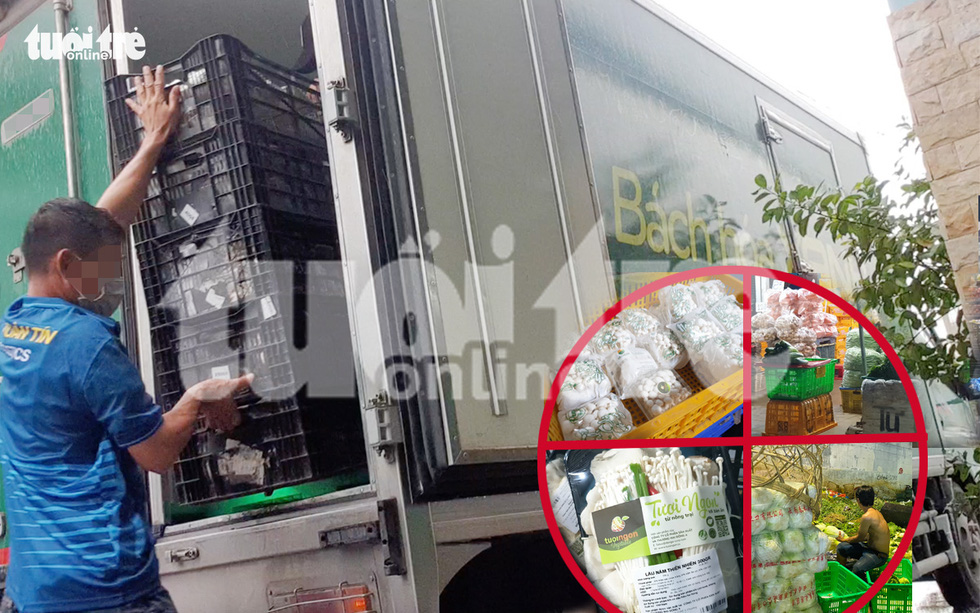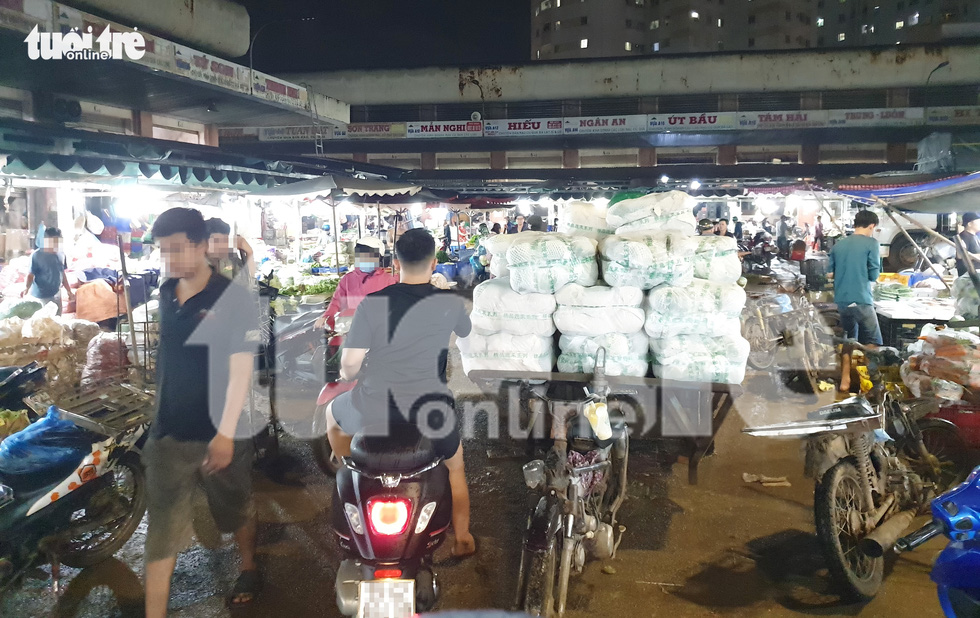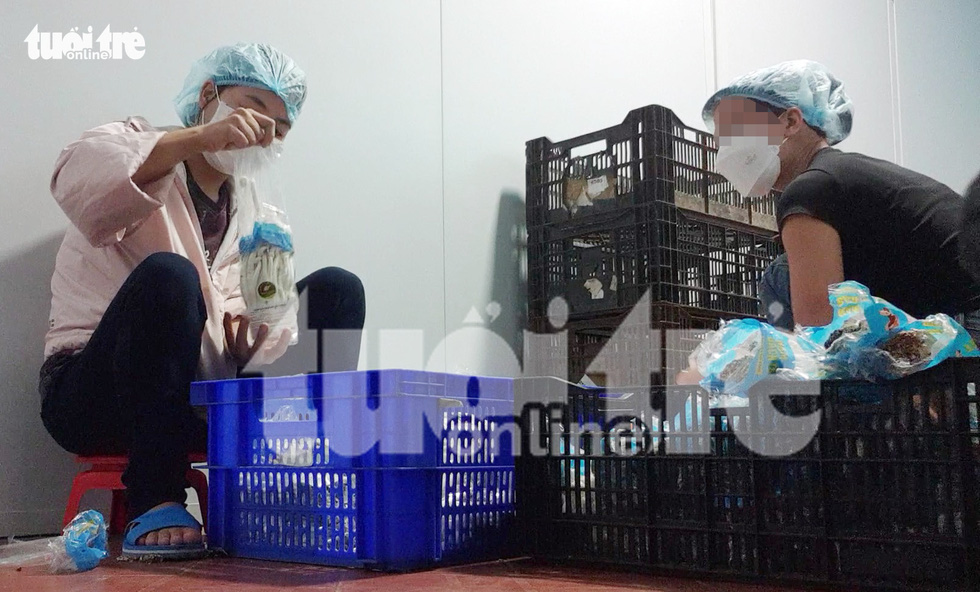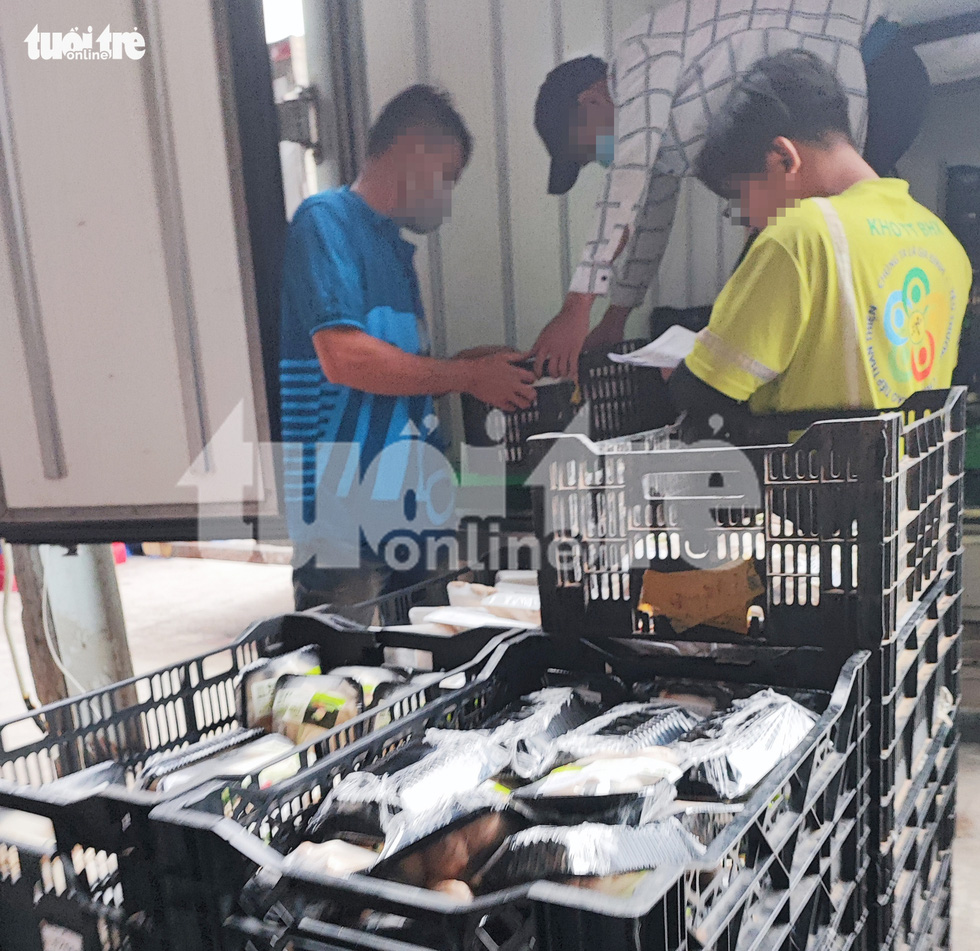Ho Chi Minh City-based grocery chain Bach Hoa Xanh has been selling made-in-China mushrooms in the guise of quality local goods bearing Vietnamese Good Agricultural Practices (VietGAP) tags, according to an investigation by Tuoi Tre (Youth) newspaper.
Investigative journalists from Tuoi Tre found that Dong A Trading and Production JSC, based in Linh Dong Ward, Thu Duc City, a district-level unit under Ho Chi Minh City, had been allegedly providing mislabeled products to Bach Hoa Xanh.
In order to bear the VietGap label, fruits and vegetables must be grown using methods that ensure the safety and cleanliness of the products.
In a statement sent to Tuoi Tre on Wednesday, Bach Hoa Xanh said it immediately ceased the sale of all products supplied by Dong A and asked the company to check the quality, origin, and supply process of its products.
The grocery chain also issued an apology to customers.
“Bach Hoa Xanh’s aim is to comply with regulations on the product traceability and ensure clear origins for its products," the chain said.
"In this case, Bach Hoa Xanh understands the importance of better controlling the origin and quality of commodities.
|
|
| Vegetables are imported from China to Hoc Mon wholesale market in Ho Chi Minh City. Photo: Bong Mai / Tuoi Tre |
“Bach Hoa Xanh purchased only mushrooms from Dong A. On June 8, 2022, we signed a contract with Dong A to use their products for up to three percent of the mushrooms sold in our stores.
“After this case, Bach Hoa Xanh will work with all of our other suppliers to better control our product sources.”
Bach Hoa Xanh claims the most important criteria it evaluates when purchasing products are quality, hygiene, and safety.
Imports sold in its stores also meet Vietnam’s requirements, including having their origins and quality verified by and registered with relevant agencies.
Fake and smuggled goods are prohibited from hitting the shelves.
Bach Hoa Xanh claims its current policy is not to compromise with suppliers who skirt these regulations.
Violations come to light
With an abundant supply and prices as low as half of what Vietnamese products sell for, masquerading Chinese produce as 'grown-in-Vietnam' is becoming commonplace at supermarkets and convenience stores looking to improve their bottom lines.
Last month, Tuoi Tre reporters went undercover as Dong A Company workers and discovered that the issue of fraudulent produce stretches beyond the produce sold at a single grocery store chain.
During their investigation, the undercover reporters noticed a small mushroom processing room at the Dong A facility that had been sectioned off from the primary vegetable processing area.
Inside the room, workers were replacing packing branded by a company named 'Ready Food' with new labels and tags that included the words 'fresh' and other Dong A insignia.
These 'new' 300-gram trays of sundry, oyster, king oyster, and enoki were filled with produce that had been sourced from China and given 'fresh from farm to table' stickers together with a VietGap logo issued by the Vietnamese Ministry of Agriculture of Rural Development.
Elsewhere in the mushroom processing room, 125-gram bags of white linhzhi mushrooms labeled as 'made in China' that had been imported and distributed by Loi Hao Gia Co. Ltd. were repackaged into new 150-gram trays, renamed as 'beech mushrooms' and given stickers claiming the products were 'Fresh Vegetables' and 'fresh from farm to table.'
Any traces of these products’ Chinese origins were removed.
The fact that these mushrooms had all originated in China was corroborated by a veteran Dong A worker.
Another Dong A worker told the Tuoi Tre reporters that these relabeled and repackaged mushrooms were to be delivered to Bach Hoa Xanh grocery stores.
Sure enough, while the reporters were still on-site at the Dong A facility, a green truck bearing the Bach Hoa Xanh label pulled up to the loading dock where workers wearing shirts that read ‘Toan Tin (Fully Trusted) Logistics’ began loading the truck with mushrooms.
Fully Trusted Logistics JSC is an arm of Mobile World Investment Corporation, the operator of Bach Hoa Xanh.
|
|
| Workers replace the packaging of Chinese seafood mushrooms with plastic bags featuring a Dong A Trading and Production JSC logo. Photo: Bong Mai / Tuoi Tre |
Dong A claims a pillar of its mission is ‘Spreading Dong A’s spirit – connecting the community, and being an important part in the supply chain of agricultural products in Vietnam to increase the value of and ensure the sustainable development of Vietnamese agricultural products.’
The reporters followed the truck to Bach Hoa Xanh’s central warehouse on Tran Dai Nghia Street in Binh Chanh District, Ho Chi Minh City, where the Dong A-branded mushrooms were unloaded.
An employee at the warehouse said the products were destined for Bach Hoa Xanh’s retail stores.
As part of their investigation, the Tuoi Tre reporters visited a mushroom stall run by Loi Hao Gia in Thu Duc wholesale market.
Gia’s stall specializes in enoki, seafood, king oyster, brown and white lingzhi, and fresh shiitake mushrooms.
According to staff, all of these mushrooms had been imported from China.
“Only the [food suppliers’] packaging is theirs. They buy our mushrooms and replace the packaging and labels to make them their own,” one staff member claimed.
Consequences an afterthought
Ho Chi Minh City’s Thu Duc and Hoc Mon wholesale markets have recently seen a huge inflow of vegetables from both China and from across Vietnam.
These products include napa cabbages, cabbages, onions, carrots, and turnips, and most seem to have had their stamps and labels tampered with.
At Thu Duc wholesale market, relabeling is so rampant that stall owners occasionally remove and replace Chinese labeling in plain sight.
According to H., a trader at Thu Duc wholesale market, the wholesale price for Chinese onions is just VND15,000 (US$0.63) per kilogram compared to nearly double for onions grown in Da Lat, a greens hub of Vietnam.
In addition to their lower prices, Chinese onions can also be stored for up to two weeks. Da Lat onions, on the other hand, have a shelf life of about five days.
“Only three to four percent of traders choose Da Lat greens. Most mainly sell [China-originated] produce,” H. shared, pointing out that Chinse cabbages, for example, are bigger and have better coloring.
H. also noted that Chinese and Da Lat cabbages both sell for about VND15,000 per kilogram but consumers prefer the Chinese because of their longer shelf life – six days versus three days.
|
|
| After taking mushrooms from Dong A Trading and Production JSC, a Bach Hoa Xanh truck transports the products to the grocery chain’s central warehouse in Binh Chanh District, Ho Chi Minh City. Photo: Q.B. / Tuoi Tre |
Linh, a vendor at Hoc Mon wholesale market, noted that the packaging for the carrots, potatoes, onions, and fruits sold at the market all displays Chinese labeling, but when they are distributed to wet markets unpackaged, sellers there can easily dupe customers into believing they were cultivated elsewhere.
“Vietnamese people don’t like poor-quality Chinese agricultural products, so most sellers say their products were farmed in Da Lat, the U.S., or Japan," Linh said.
“This also lets them sell their produce for double or triple the price."
Chinese agricultural products overwhelm Vietnamese market
According to Thu Duc wholesale market representatives, about 550 metric tons of Chinese goods are brought into the market each night.
Many of these products, such as potatoes, carrots, napa cabbages, garlic, grapes, and pears, are sold at the market throughout the entire year.
Their prices are also considerably cheaper than their counterparts grown in other countries.
Chinese apples, for example, cost VND35,000 ($1.5) per kilogram while U.S. gala apples sell for VND75,000 ($3.2) per kilogram.
In addition, Chinese and Korean pears are sold at VND35,000 and VND65,000 ($2.8) per kilogram, respectively.
Another case in point is garlic, which fetches VND25,000 ($1.1) per kilogram if grown in China but VND300,000 ($12.7) per kilogram if planted on Vietnam’s Ly Son Island.
The price of Da Lat pink potatoes is double that of Chinese yellow potatoes, at VND28,000 ($1.2) and VND14,000 ($0.59) per kilogram, respectively.
While the supply of many local goods, such as Vinh Chau red onions, Da Lat white onions and carrots, and Hanoi cauliflowers, fails to meet demand, Chinese products are abundant and fetch low prices.
Chinese red onions cost just VND25,000 ($1.1), Chinese white onions and carrots VND15,000, and Chinese cauliflowers VND35,000.
Committing violations
As per Decree 43/2017/ND-CP, organizations and individuals must take responsibility for labelling products, including secondary labels, in an honest, clear, and accurate manner which shows the nature of the products, according to a Ho Chi Minh City lawyer.
Imported goods with improper labels may feature secondary labeling but the original tags need to remain intact on the packaging.
Like us on Facebook or follow us on Twitter to get the latest news about Vietnam!




















































